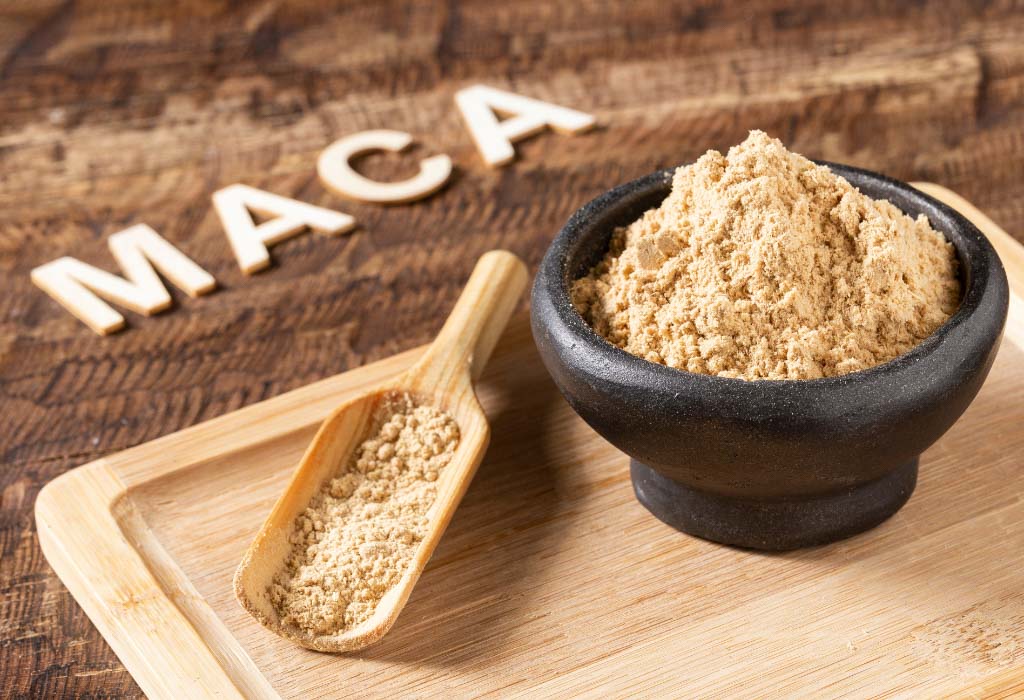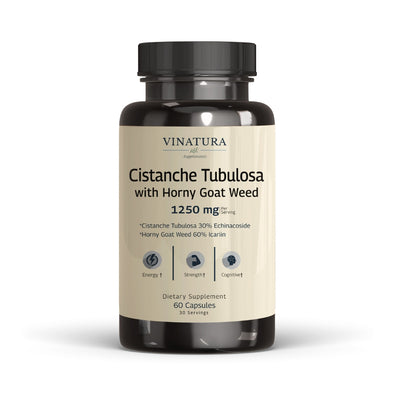
How Much Maca Per Day Should I Take? Maca Root Dosage Daily
There aren't any standard dosage guidelines for Maca, you need to consider various factors such as your age, weight, health condition, and the form of Maca you're taking (powder, capsules, etc.).
So, how much Maca should I take per day? What is the daily dose of Maca root? These questions will be answered through this article.
Before exploring further, please read the disclaimer located at the end of this webpage.
How Much Maca Per Day Should I Take?
Overall Of Maca Root Dosage

When consumed orally, Maca is generally considered safe when included in foods. As a medicinal supplement, it is safe in higher doses for a short duration. Daily doses of up to 3 grams appear to be safe when taken for a period of up to 4 months. [1]
How Much Maca Powder Should I Take?
Maca is a versatile supplement available in various forms, including capsules and powders. While there's no established optimal dose for medicinal use, studies typically use a dosage of maca root powder ranging from 1.5 to 3 grams per day. [1]
You may start with a lower dose and gradually increase as needed.
However, you can also follow the directions on the product label or consult your healthcare provider for individualized recommendations. Remember not to exceed the recommended product dosage to avoid unwanted side effects.
How Much Maca Is Too Much? Maximum Daily Dose of Maca Root

A study conducted in 2015 involving 45 women who experienced sexual dysfunction induced by antidepressants revealed that taking 3,000 milligrams (mg) of maca root daily for 12 weeks significantly enhanced sexual function and libido compared to a placebo. [3]
Maca is considered safe for consumption as a regular dietary ingredient. Research indicates that it is safe when taken as a supplement in doses of up to 3 grams per day for up to four months. [1]
Can You Overdose On Maca Root?
While there isn't a specific maximum daily dose established, it's generally recommended not to exceed 3 grams of maca root powder daily. Consuming excessive amounts may lead to digestive issues or other adverse effects.
Some customers have reported issues such as feelings of anxiety, insomnia, and mild digestive problems. However, it is not easy to consume too much.
Side Effects of Maca Root

Some common side effects of maca root may include: [4]
- Altered menstrual cycles: Some users have reported changes in menstrual patterns after consuming Maca.
- Moodiness: Maca consumption may lead to fluctuations in mood in some individuals.
- Cramps: Maca intake might cause abdominal discomfort or cramping.
- Gastritis: There have been reports of Maca exacerbating gastritis, a condition characterized by inflammation of the stomach lining.
- Insomnia: Difficulty in sleeping or insomnia has been reported by some users after consuming Maca.
Guide for Taking Maca Without Side Effects
To minimize the risk of side effects when using Maca, you can do the following:
Start with a moderate dose and gradually increase based on tolerance. At this point, you can know whether your body is suitable for using Maca. If your body has unwanted side effects, consider stopping the product.
Observe how your body reacts to Maca and adjust your dosage accordingly. If unexpected problems suddenly occur during use, you should seek guidance from your healthcare provider.
Conclusion
You probably have the answer to the question: "How much Maca per day should I take?" right? Maca root is considered safe when consumed in moderate doses.
Although there is no standard recommended dosage, studies have shown that doses of 1.5-3 grams daily for up to 4 months appear safe.
Although maca root offers potential health benefits, it is essential to use it responsibly to avoid side effects.
References
- [1] Maca: MedlinePlus Supplements. (2023). Medlineplus.gov. https://medlineplus.gov/druginfo/natural/555.html
- [2] Dording, C. M., Fisher, L., Papakostas, G., Farabaugh, A., Shamsah Sonawalla, Fava, M., & Mischoulon, D. (2008). A Double‐Blind, Randomized, Pilot Dose‐Finding Study of Maca Root (L. Meyenii) for the Management of SSRI‐Induced Sexual Dysfunction. CNS Neuroscience & Therapeutics, 14(3), 182–191. https://doi.org/10.1111/j.1755-5949.2008.00052.x
- [3] Dording, C. M., Schettler, P. J., Dalton, E. D., Parkin, S. R., Rosemary, Fehling, K. B., Fava, M., & Mischoulon, D. (2015). A Double-Blind Placebo-Controlled Trial of Maca Root as Treatment for Antidepressant-Induced Sexual Dysfunction in Women. Evidence-Based Complementary and Alternative Medicine, 2015, 1–9. https://doi.org/10.1155/2015/949036
- [4] Corazza, O., Martinotti, G., Santacroce, R., Chillemi, E., Massimo Di Giannantonio, Schifano, F., & Selim Cellek. (2014). Sexual Enhancement Products for Sale Online: Raising Awareness of the Psychoactive Effects of Yohimbine, Maca, Horny Goat Weed, and Ginkgo biloba. BioMed Research International, 2014, 1–13. https://doi.org/10.1155/2014/841798
Author

Product Disclaimer
Including an ingredient or study does not evaluate, endorse, or recommend any Vinatura product or any third-party product. Some ingredients discussed may not be used in any Vinatura product.
The content of the articles has not been evaluated by the Food and Drug Administration (FDA) and is not intended to promote or endorse any specific product. Any products sold on this website are not intended to diagnose, treat, cure, or prevent any disease.
Opinions and Endorsements
Any claims, statements, or opinions expressed in the articles are those of the author(s) and do not necessarily reflect the views or opinions of the manufacturers of the dietary supplement products. The products sold on this website are separate from the content of the articles and are not directly endorsed or associated with the information presented here.
Liability Disclaimer
The author(s) of the articles, website, and manufacturers of the dietary supplement products do not assume any liability for any potential consequences arising from the use of the information provided in the articles. Ingredient effects, dosages, and safety vary by individual, formulation, and context; some ingredients interact with medications or may be unsuitable during pregnancy or lactation. It is recommended that individuals consult with a qualified healthcare professional before making any dietary or lifestyle changes, including the use of dietary supplements.
Product Usage
Please refer to the product labels and packaging for specific usage instructions and guidelines for the dietary supplement products sold on this website.
Customer Support
For any concerns or questions regarding the dietary supplement products, please contact our customer support team, who will be more than happy to assist you.





Leave a Comment
Be the first to comment.
What do you think?